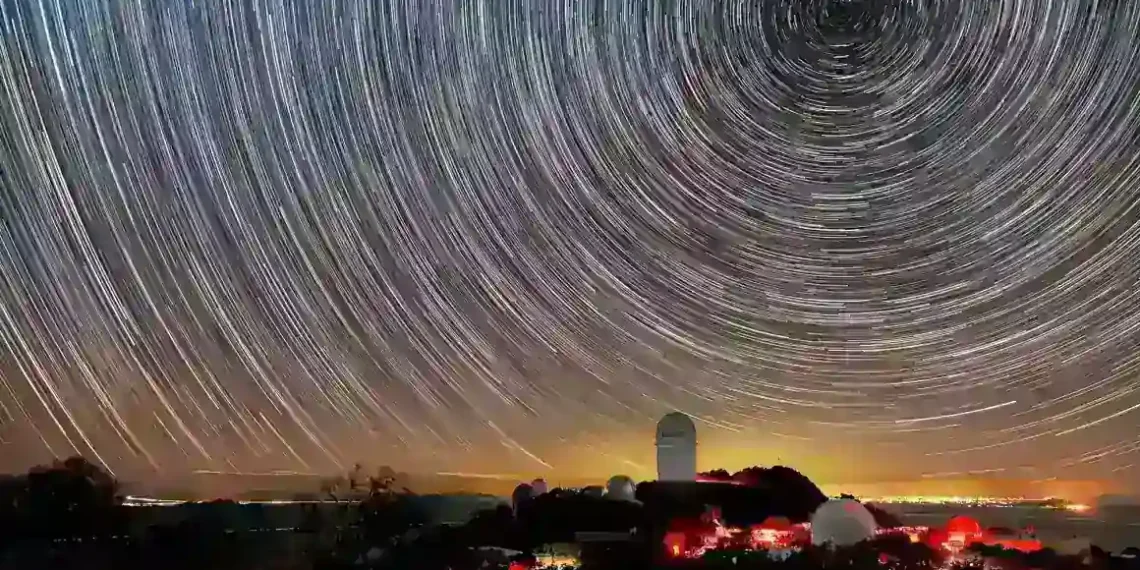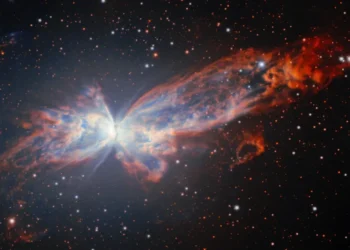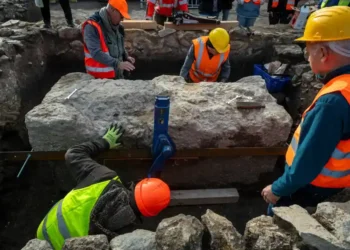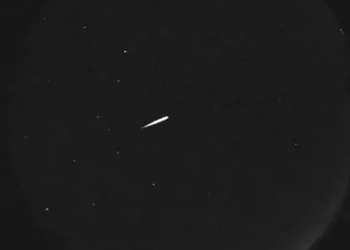New Data Suggests Dark Energy May Be Evolving: A Game-Changer for Understanding the Universe
Astronomers have made a groundbreaking discovery that could completely change how we think about dark energy, the mysterious force responsible for accelerating the expansion of the universe. In a new set of findings from one of the most ambitious cosmic surveys ever conducted, dark energy appears to be evolving in ways previously unimagined.
Dark energy, which makes up about 70% of the universe’s total energy, remains one of the biggest enigmas in astrophysics. Despite its immense influence on the cosmos, scientists still don’t fully understand what it is or how it works. According to Mustapha Ishak-Boushaki, a professor of physics and astrophysics at the University of Texas at Dallas, “We have no idea exactly what dark energy is.”
Ishak-Boushaki is part of the Dark Energy Spectroscopic Instrument (DESI) collaboration, a project designed to observe and analyze the universe on a massive scale. DESI, now in its fourth year, has been mapping galaxies and gathering data to help unlock the secrets of dark energy.
DESI is revolutionizing our understanding of the universe. Using the National Science Foundation’s 4-meter telescope in Arizona, the instrument observes light from up to 5,000 galaxies at once. By the time the survey concludes next year, it will have mapped light from around 50 million galaxies—providing an unparalleled view of the universe over the last 11 billion years.
The latest release from DESI, shared on March 19, offers a treasure trove of data, including measurements from nearly 15 million galaxies and quasars. These new findings suggest that dark energy may not be the constant force astronomers once believed it to be. Instead, it appears to be changing—perhaps even weakening over time.
The concept of dark energy was first introduced nearly 30 years ago, and its discovery has since been one of the most shocking revelations in astrophysics. Now, new evidence is pointing toward the idea that dark energy evolves, potentially reshaping our understanding of how the universe works. As David Weinberg, an astronomer at The Ohio State University, puts it, “These new measurements offer the strongest evidence so far that dark energy evolves, which would be another mind-blowing change to our understanding of the universe.”
DESI’s incredible capabilities allow it to build one of the largest 3D maps of the universe. By measuring light from celestial objects at different points in time, DESI is revealing how dark energy has influenced the cosmos throughout history. It uses what’s called the baryon acoustic oscillation (BAO) scale—a standard ruler to measure distances in the universe—to track how the universe has expanded over billions of years.
John Moustakas, a professor at Siena College and co-lead of DESI’s data release, explains, “DESI is unlike any other machine in terms of its ability to observe independent objects simultaneously.”
The findings suggest that dark energy’s effect on the universe may not be as constant as scientists once thought. In fact, when combined with other measurements—from supernova explosions to the cosmic microwave background—DESI data shows that dark energy’s influence could be weakening over time.
If this trend continues, it could mean that dark energy will no longer be the dominant force driving the universe’s expansion. Instead, the expansion could slow down or even reverse. While this is a far-off possibility, taking billions of years, Ishak-Boushaki notes, “If the evidence continues to grow, and it is likely to, this will be huge for cosmology and all of physics.”
While it’s too early to definitively conclude that dark energy is evolving, the data is compelling. Ishak-Boushaki and his colleagues are excited to see how future measurements may help confirm or challenge these findings. Paul Martini, a coordinator of the analysis, adds, “If the evidence becomes overwhelming, our next questions will be: How does dark energy evolve? And what are the physical explanations for it?”
The collaboration is already preparing for the next phase of research, with new experiments like Spec-S5, which will study over 10 times as many galaxies as DESI. These projects, along with upcoming missions like the Euclid and Nancy Grace Roman Space Telescopes, promise to give scientists even more tools to explore dark energy and the universe’s expansion.
What does all this mean for our understanding of the universe? If dark energy is indeed evolving, it could upend current models of cosmology. Jason Rhodes, a cosmologist at NASA, suggests that this could indicate a need for a more complex model of dark energy—one that accounts for its changing nature over time.
As scientists continue to push the boundaries of our knowledge, Ishak-Boushaki reflects on the significance of the work: “Whatever the nature of dark energy is, it will shape the future of our universe.” The answers may still be out of reach, but the quest to understand dark energy is leading us closer to answering some of the biggest questions humanity has ever asked.
This article was rewritten by JournosNews.com based on verified reporting from trusted sources. The content has been independently reviewed, fact-checked, and edited for accuracy, neutrality, tone, and global readability in accordance with Google News and AdSense standards.
All opinions, quotes, or statements from contributors, experts, or sourced organizations do not necessarily reflect the views of JournosNews.com. JournosNews.com maintains full editorial independence from any external funders, sponsors, or organizations.
Stay informed with JournosNews.com — your trusted source for verified global reporting and in-depth analysis. Follow us on Google News, BlueSky, and X for real-time updates.














